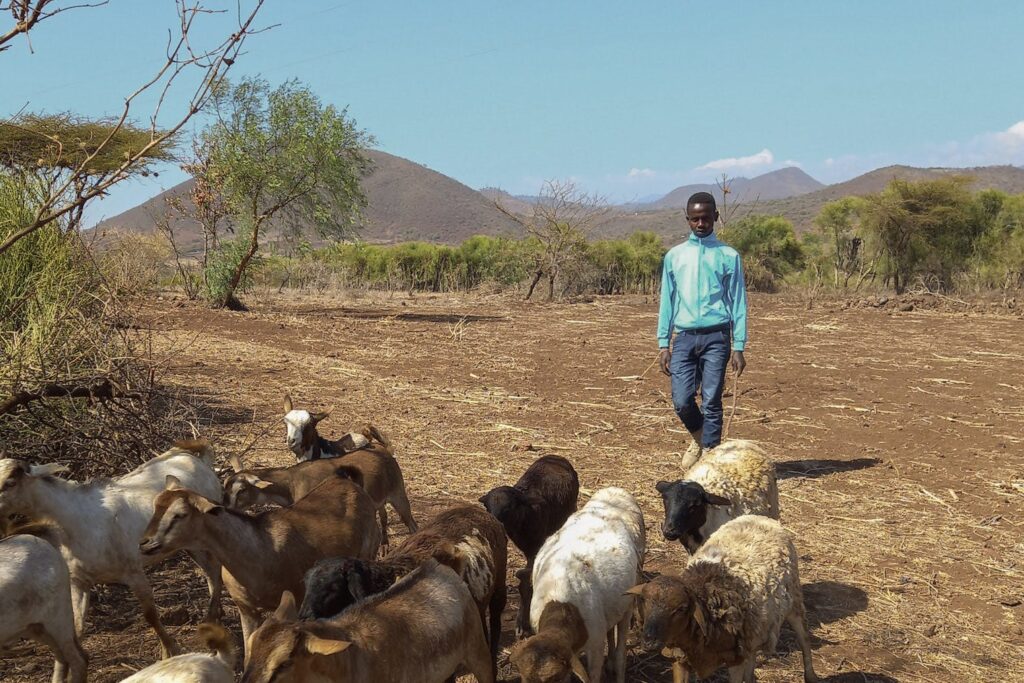Emmanuel lives in Kananga village in Kenya. He was formerly a Food for the Hungry (FH) sponsored child. As he was reaching young adulthood, he was offered a chance to take an FH business training course.
Before becoming a sponsored child, Emanuel says he had a number of negative beliefs. Because he wasn’t doing well in school, he became convinced that he would be a poor person. He had developed low self-esteem and even self-hatred. He says he related poverty to “a chronic disease that had no cure.”
Through biblical approaches, FH staff helped him develop hope. He learned that he can use his God-given talents and skills to make a living. He eagerly started the business training course and completed it in April 2022. It opened many opportunities for him. He currently supports himself as a boda boda driver, offering delivery and transportation on one of the small motor bikes that are ubiquitous in the region.
He has developed his business using skills he learned in the training. The work makes it possible for him to also help support his mother and brother.
Which Came First: Chickens
Before his training, Emmanuel raised poultry. But the business training course helped him realize that it was not practical to keep caged chickens in his environment. So he released them and tried his hand at goat keeping. He says that has been much more productive.

Through the business training course, Emmanuel said he learned about saving culture, discipline, and the opportunity of starting his business driving a boda boda. Among the things he learned in the course was how to make his services attractive to customers. Using that knowledge, he developed a good customer base.
Successful Saving
But he soon realized his success was compromised because the bike was not his own. He resolved to dedicate himself to intentional saving in order to buy his own bike and expand his livestock business.
“I would get between 300 and 400 Kenya shillings (KES) a day, so I would use 100 KES for my family’s food needs and save the rest,” says Emmanuel. He told FH Kenya staff that he was able to save 9,000 KES in four months (approximately $7,200 USD). With those funds, he was able to buy three goats.
Business Training Course Plants Dreams
Emmanuel’s plan now is to multiply his goats, eventually sell them, and then trade up to cows and bulls. His ultimate plan is to have a ranch of his own.

When he met with FH Kenya staff to tell his story, Emanuel was just returning home to water his goats, which he has since integrated with his mother’s goats.
Teaching Others
Today, Emanuel says, he is an ambassador of change to other youth in the community. He is committed to share his knowledge of business skills and the dangers of drug abuse to all people in his community. As a result, he says, many young people now realize the importance of saving money, and there has been a significant drop in drug and substance abuse.
Emanuel says he and his family have learned the importance of acknowledging God as their ever-present help in times of need. “I feel more confident in myself,” he says. “I now know that God loves everyone. Poverty comes when people are not aware of their self-worth and potential.”
Emmanuel added that the business training course helped him realize that everything is possible if you put your mind to it.
You May Also Enjoy These Posts:


